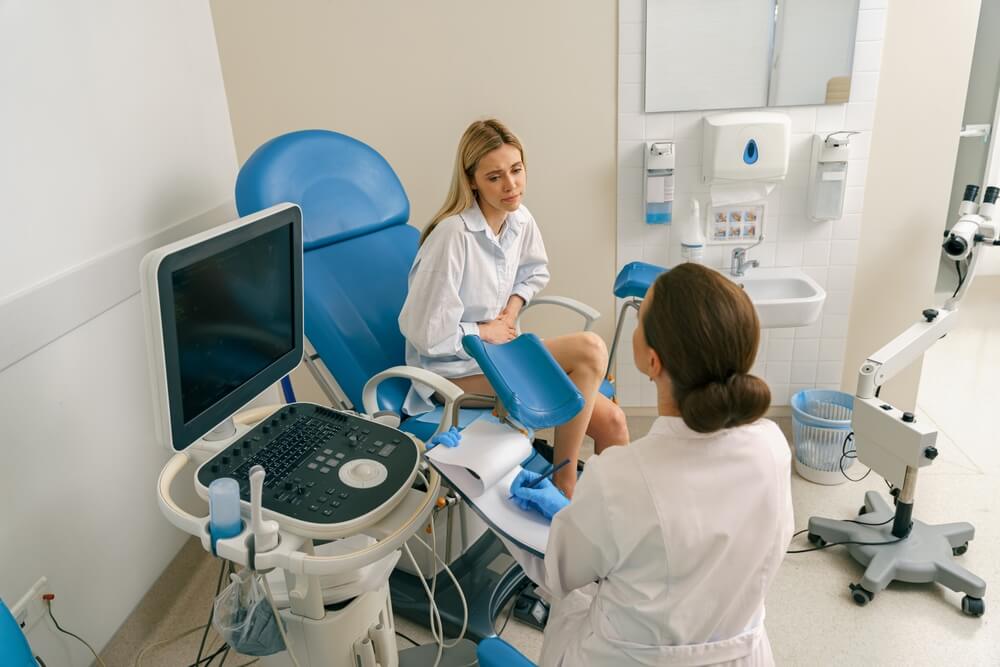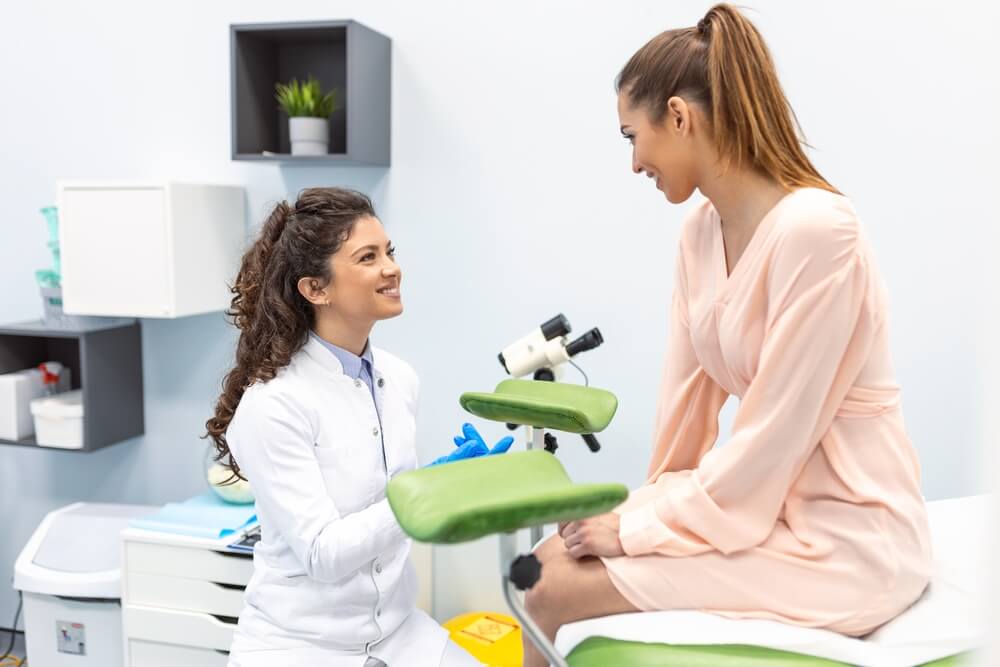Embarking on a journey to prioritize your reproductive health involves proactive communication with your gynecologist. Knowing the right questions to ask during your gynecologist appointments empowers you to make informed decisions about your well-being. In this guide, Dr. Arunachalam Jothivijayarani will explore 12 essential questions to ask your gynecologist, ensuring that your appointments are not only routine but also insightful experiences contributing to your overall health.
No matter whether you are preparing for your first–time gynecologist visit, this guide will give you a handful of insight about what to expect and, naturally, what to ask among those gynecologist questions.
Essential Gynecologist Questions

1. What Screenings or Tests Do I Need at My Current Life Stage?
Understanding the screenings and tests relevant to your age and life stage is crucial for preventive care. Whether you’re in your twenties, thirties, or beyond, your gynecologist can provide insights into tests such as Pap smears, mammograms, and other screenings appropriate for your reproductive health.
2. Can You Explain the Results of My Recent Tests?
Don’t hesitate to seek clarification on any test results. Your gynecologist is there to guide you through the information, explaining what each result means and addressing any concerns or uncertainties you may have.
3. What Birth Control Options Are Suitable for Me?
Discussing birth control options is an integral part of gynecological care. Your gynecologist can provide information on various contraceptives, helping you choose the one that aligns with your health goals and lifestyle.
Choosing the right birth control method is a highly individualized decision, and your gynecologist understands the importance of tailoring recommendations to your specific needs. They can discuss the pros and cons of different contraceptives, considering factors such as effectiveness, side effects, and long-term reproductive plans. Additionally, your gynecologist will take into account any pre-existing health conditions you may have, ensuring that the chosen contraceptive method complements your overall well-being. Openly communicating your preferences and concerns allows for a collaborative decision-making process, ultimately leading to a birth control choice that harmonizes seamlessly with your health and lifestyle.
4. How Can I Maintain a Healthy Reproductive System?
Inquire about lifestyle practices and habits that promote reproductive health. Whether it’s diet, exercise, or other wellness strategies, your gynecologist can offer personalized advice to support your overall well-being.
5. Are There Any Changes in My Body That I Should Be Aware of?
Your body undergoes changes throughout life, and staying attuned to these changes is essential. Ask your gynecologist about any signs or symptoms that may require attention, fostering a proactive approach to your health.
Regular communication with your gynecologist about bodily changes ensures a comprehensive understanding of your health trajectory. By sharing any unusual signs or symptoms, you enable your gynecologist to identify potential issues early on, allowing for timely intervention and management. This proactive approach not only contributes to the early detection of health concerns but also establishes a trusting and collaborative relationship with your healthcare provider, ensuring optimal reproductive health throughout different stages of life.
6. What Can I Do to Manage Menstrual Discomfort or Irregularities?
Menstrual health is a common topic during gynecological visits. Discuss any concerns or discomfort related to your menstrual cycle, and seek guidance on managing symptoms or irregularities effectively.
Your gynecologist can offer insights into lifestyle adjustments, dietary considerations, or potential treatments to alleviate menstrual discomfort or irregularities. Open dialogue about your menstrual health fosters a supportive environment, empowering you with the knowledge and strategies needed to manage your menstrual cycle effectively.
7. Are There Specific Vaccinations I Should Consider for Reproductive Health?
Vaccinations play a role in preventive care, and your gynecologist can advise you on vaccines that are particularly relevant to women’s reproductive health.
Your gynecologist may recommend vaccines that protect against the human papillomavirus (HPV), a common sexually transmitted infection known to cause cervical cancer. Additionally, discussing vaccinations for hepatitis B is crucial for safeguarding liver health, especially considering its potential impact on pregnancy. If you’re planning to become pregnant or are currently expecting, your gynecologist might discuss vaccines to protect both you and your baby, such as the flu vaccine or the Tdap (tetanus, diphtheria, and pertussis) vaccine. Staying up-to-date on vaccinations ensures a proactive approach to your reproductive health, preventing potential risks and promoting overall well-being.
8. How can I optimize my fertility if I plan to have children in the future?
If family planning is on your horizon, discuss strategies to optimize fertility and address any questions or concerns you may have about conception and reproductive planning.
9. What Are the Potential Signs of Gynecological Conditions, and How Can I Recognize Them?
Being aware of signs and symptoms related to gynecological conditions empowers you to seek prompt medical attention if needed. Ask your gynecologist about red flags and how to recognize them.
Additionally, inquire about any family history that might influence your risk of certain gynecological conditions, as this information can guide preventive measures and screenings. Establishing a clear understanding of potential warning signs ensures you are equipped with the knowledge to prioritize your reproductive health and take timely action when necessary.
10. Are There Lifestyle Changes I Can Make to Support a Healthy Pregnancy?
If you’re considering pregnancy in the future, inquire about lifestyle changes that can contribute to a healthy pregnancy. Your gynecologist can provide guidance on nutrition, exercise, and other factors.
Moreover, discussing any pre-existing medical conditions or medications you may be taking is crucial in preparing for a healthy pregnancy. Your gynecologist can offer personalized advice on managing chronic conditions and adjusting medications, if necessary, to optimize fertility and the overall well-being of both you and your future baby. This proactive approach allows for a well-rounded understanding of your reproductive health, ensuring that you enter pregnancy with the best possible foundation for a successful and healthy journey. Engaging in these discussions early on fosters a supportive relationship with your healthcare provider, enhancing your readiness for the exciting chapter of parenthood.
11. Can You Explain the Potential Side Effects or Risks of My Current Contraceptive Method?
If you’re using contraception, understanding potential side effects and risks is essential. Openly discuss any concerns or experiences you’ve had with your current contraceptive method.
12. What Should I Include in My Self-Care Routine for Gynecological Health?

In addition to professional guidance, incorporating self-care practices into your routine is vital. Ask your gynecologist for personalized advice on self-care activities that support your gynecological health.
Whether it’s stress management techniques, mindfulness practices, or strategies for maintaining emotional well-being, your gynecologist can provide tailored suggestions to enhance your overall gynecological health. By integrating personalized self-care practices into your routine, you contribute to a holistic approach to well-being that complements professional guidance for optimal reproductive health.
For Further Questions…
Prioritizing your reproductive health involves active engagement with your gynecologist, and asking the right questions is key to fostering this partnership. The 12 questions outlined in this guide provide a foundation for meaningful discussions during your gynecological appointments. Remember, your gynecologist is there not only to address concerns but also to empower you with the knowledge and insights needed to make informed decisions about your reproductive well-being. Approach your gynecologist appointments with curiosity and openness, ensuring that each visit contributes to your journey of proactive and informed women’s health.
So, if you are looking for a gynecologist in Bradenton, Florida, with whom you can discuss these topics with ease, feel free to schedule an appointment with our compassionate experts.


